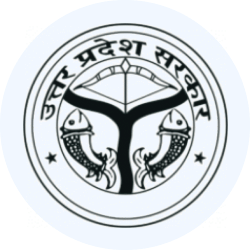Information Technology and Small Entrepreneurs - Essay, UPSC MAINS | Course for UPPSC Preparation - UPPSC (UP) PDF Download
Information Technology and Small Entrepreneurs
structure
(1) Opening — Entrepreneurs require varieties of information when they get involved in the process of identifying and formulating the project, raise various resources, implement them and keep the same growing.
(2) Body — Establishment of a number of organisations by the Central government.
— Limitations to fulfiling the needs of small entrepreneurs.
— In formation service are well organised in the developed world.
— Internet has been introduced.
— Developments in infor-mation technology have hardly been of any help.
— Project profile database.
— Need of infrastructure.
— Marketing information service.
— Motivation for unemployed.
(3) Closing — The entrepreneurs should understand the importance of information and be willing to pay for it.
A small scale enterprise is the dream of an ambitious individual who does not want to be employed by others but to stand on his own legs. Such a person wants to have guidance in the task of setting up the enterprise. If he succeeds he becomes wealthy and if he loses he has lost everything. Therefore all his decisions should be sound and there is the importance of information. Entrepreneurs require varieties of information when they get involved in the process of identifying and formulating the project, raise various resources, implement them and keep the same growing.
While in the process of identifying the project he needs to have a checklist of projects that may suit his background, within his capacity to invest, relevant to the location he prefers, and so on. Then, with the list of products or projects he has to undertake market research, and by process of elimination select that single project of his dream and prepare a detailed project report, thereafter he has to raise resources, arrange for land building, plant and machinery, recruit personnel, erect and commission the equipment, develop products, establish marketing channels, sell his products, get customer feed back, keep competing in the market and grow. All these activities require a mass of accurate and up-to-date information.
For a given investment the employment potential of the small industry is the highest. Since a government has to give high priority to solving the unemployment problem so as to remain in power the State and Central governments have established a number of organisations to undertake development of large, medium, small, tiny, and cottage industries. Since the last three are very large in numbers running to millions spread far and wide there are hundreds of organisations functioning at the district level, state Capitals and throughout the country also. The Small Industry Development Organisation of the Government of India with its vast network of institutions across the entire country, state level industry departments, district industry centres, small industry development corporations, state financial corporations, village and khadhi industries commissions and boards, and many more such organisations are spending enormous amount of resources. All these organisations are supposed to provide varieties of crucial information to the entrepreneur and help him take the right decision every time.
Some organisations have the mandate to provide up-to-date project profiles for entrepreneurs to make investment decisions. For about 8000 project profiles containing number of variables with respect to item, location and chosen technology there is no one to provide a reasonably up-to-date project profile when demanded by the entrepreneurs. The same is the fate unreceptive of getting market research data, analysis and reports, industrial potential reports, area development study reports, requirements of product and services from small industry by large and medium industry, central and state governments, are also supposed to be within the reach of small entrepreneurs. Then there is the need for the small entrepreneurs to know abut foreign trade information concerning importers, exporters, countries, their industry and business profiles, sources of technology, raw materials, equipment, patents, quality standards, prices, government rules and regulations, taxes and duties, and so on. But the entrepreneurs do not get the information. The export promotion councils, and government undertakings have severe limitations to fulfilling the needs of small entrepreneurs who themselves cannot afford to gather the same.
Now information services are well organised in the developed world due to the developments in electronics, computers and telecommunication. The development in electronic data processing, personal computers, networking, linking pc. modems and telephones have now made it possible to collect large magnitude of data. Instant on-line retrieval of information and storage through what are called CD-ROM desks have become a reality. In the developed world data base companies are revolutionising business. Internet is proving to be a fantastic medium for not only information but also communication through Emailand different other applications. Business publicity through Internet is spreading like wilds fire. There are thousands of database companies collecting daily global information, updating and making the same available worldwide.
Although many organisations in India, both government and private are in the business of providing information they have severe limitations with regard to resources, expertise, technology and vision. A few organisations such as the centre for monitoring Indian economy, BISNET of FICCI, India on line by DART, INSDOC, National informatic Centre, and others have appeared on the scene.
But these developments have hardly been of any help to the small industry sector. Electronic data processing is yet to be known to the small industry development organisation. National Informatics centre is nowhere near developing database for small industry. Enormous information was gathered when the census of small industry was organised. This was supposed to be for understanding the sector and taking policy decisions for the development by the official machinery. While no one knows of any policy decisions having revolutionised the sector, it is quite obvious that an excellent opportunity to develop a database of small industry was lost.
About five decades ago the National small industry extension training institute had put in a lot of effort to build a documentation centre. But due to various reasons it has not emerged as a national institution for coordinating the information needs of small industry. It is time there is an apex organisation network with all the promotional institutions in India as well as abroad to build a specialised database centre for small industry.
The single most important database of crucial interest to millions of Indian entrepreneurs is the project profile database. It should cost around hundred million rupees. There is need for database concerning government policy, procedures, taxes, finance, technology, markets and company profiles. Specialised database industrywise, areawise, and so on will also be needed. Since small entrepreneurs individually cannot afford to spend on their own to establish information centres there is a need for the Governments or non governmental organisations to take up the initiative in the matter. Considerable investment may be required to bring in equipment and expertise. Hundreds of organisations across the country will have to network with each other and share the cost and work. But who will bell the cat?
To meet the needs of millions of small entrepreneurs it may be required to establish hundreds of database. The Investment required will be substantial. The existing organisations work in water tight compartments and have no idea of the magnitude of the task. There is a widespread view that information should be provided to the entrepreneurs when asked for without any cost. There is no way for organisations to share the information and cost.
Neither the official machinery nor the small industry associations understand the importance of information. While the official machinery plans for making stringent rules and regulatory laws to ration the concessions, reliefs and subsidies the entrepreneurs and their associations develop expertise to find shortcuts to get doles from government departments. The infrastructure needs such as information, power and roads, are easily forgotten.
There is tremendous scope for service industries all over the world. Information services can also be profitable when millions of persons are seeking the service. It is true that the poor quality of service organised with lot of investment but offered almost free of cost at present is a discouraging factor. But it is the experience of almost everyone who has involvement in the extension services to the small industry that entrepreneurs do not mind paying as long as the information is uptodate, available when asked for and reliable. The technology that is emerging is exciting and can be easily marketed. The country is moving towards an information revolution. Highly trained manpower is easily available. Science and technology parks are being established. Therefore it is a matter of time that this service sector gets noticed by the entrepreneurs themselves.
Millions of unemployed persons need not get frustrated and keep hunting for jobs. Uptodate information, available at affordable cost when asked for, will act as motivation for them. So many small industries need not fail for having taken decisions based on wrong or insufficient information. Instead of looking for local markets the industry can hope to get overseas markets. Networking with global entrepreneurs means better quality products at cheaper prices for the consumers. It is not only empowering the entrepreneur but also enriching him or her.
Major restructuring of promotional institutions is necessary to establish an apex organisation to coordinate the development of database centres for small industry in India. It is also necessary to encourage private and non private institutions to join hands with government departments to promote information services. The entrepreneurs should understand the importance of information and be willing to pay for it. Such developments will benefit millions of persons.
|
114 videos|362 docs|105 tests
|
FAQs on Information Technology and Small Entrepreneurs - Essay, UPSC MAINS - Course for UPPSC Preparation - UPPSC (UP)
| 1. How can information technology benefit small entrepreneurs? |  |
| 2. What are some common IT tools that small entrepreneurs can use? |  |
| 3. How can small entrepreneurs leverage social media for their businesses? |  |
| 4. Are there any cybersecurity risks that small entrepreneurs should be aware of? |  |
| 5. How can small entrepreneurs stay updated with the latest IT trends and developments? |  |


























